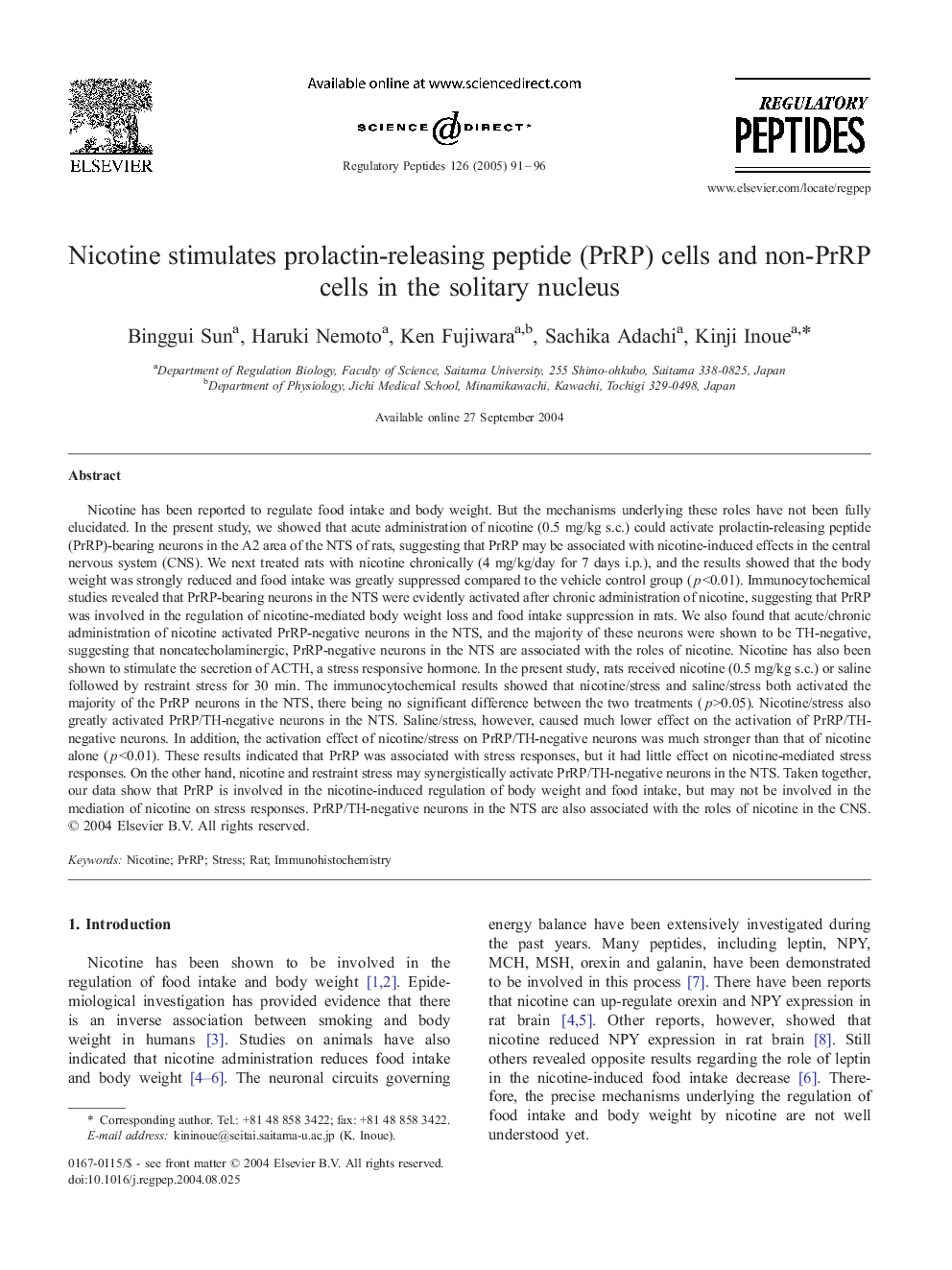| Article ID | Journal | Published Year | Pages | File Type |
|---|---|---|---|---|
| 9894484 | Regulatory Peptides | 2005 | 6 Pages |
Abstract
Nicotine has been reported to regulate food intake and body weight. But the mechanisms underlying these roles have not been fully elucidated. In the present study, we showed that acute administration of nicotine (0.5 mg/kg s.c.) could activate prolactin-releasing peptide (PrRP)-bearing neurons in the A2 area of the NTS of rats, suggesting that PrRP may be associated with nicotine-induced effects in the central nervous system (CNS). We next treated rats with nicotine chronically (4 mg/kg/day for 7 days i.p.), and the results showed that the body weight was strongly reduced and food intake was greatly suppressed compared to the vehicle control group (p<0.01). Immunocytochemical studies revealed that PrRP-bearing neurons in the NTS were evidently activated after chronic administration of nicotine, suggesting that PrRP was involved in the regulation of nicotine-mediated body weight loss and food intake suppression in rats. We also found that acute/chronic administration of nicotine activated PrRP-negative neurons in the NTS, and the majority of these neurons were shown to be TH-negative, suggesting that noncatecholaminergic, PrRP-negative neurons in the NTS are associated with the roles of nicotine. Nicotine has also been shown to stimulate the secretion of ACTH, a stress responsive hormone. In the present study, rats received nicotine (0.5 mg/kg s.c.) or saline followed by restraint stress for 30 min. The immunocytochemical results showed that nicotine/stress and saline/stress both activated the majority of the PrRP neurons in the NTS, there being no significant difference between the two treatments (p>0.05). Nicotine/stress also greatly activated PrRP/TH-negative neurons in the NTS. Saline/stress, however, caused much lower effect on the activation of PrRP/TH-negative neurons. In addition, the activation effect of nicotine/stress on PrRP/TH-negative neurons was much stronger than that of nicotine alone (p<0.01). These results indicated that PrRP was associated with stress responses, but it had little effect on nicotine-mediated stress responses. On the other hand, nicotine and restraint stress may synergistically activate PrRP/TH-negative neurons in the NTS. Taken together, our data show that PrRP is involved in the nicotine-induced regulation of body weight and food intake, but may not be involved in the mediation of nicotine on stress responses. PrRP/TH-negative neurons in the NTS are also associated with the roles of nicotine in the CNS.
Related Topics
Life Sciences
Biochemistry, Genetics and Molecular Biology
Biochemistry
Authors
Binggui Sun, Haruki Nemoto, Ken Fujiwara, Sachika Adachi, Kinji Inoue,
